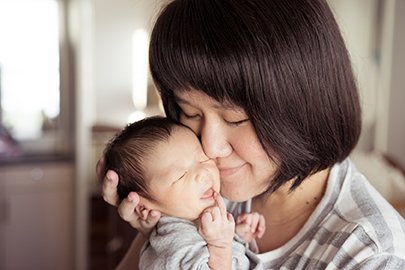
The newer “atypical” or second-generation antipsychotic agents are now used to treat a spectrum of psychiatric disorders, including schizophrenia, bipolar disorder, major depression, PTSD and other anxiety disorders. The National Pregnancy Registry for Atypical Antipsychotics was created to evaluate the safety of atypical antipsychotic medications taken by women during pregnancy. The most recent publication from the registry focuses on quetiapine (Seroquel).
Pregnant women were recruited and prospectively followed during pregnancy and the postpartum period. Eligible subjects were pregnant women between the ages of 18 and 45. As of March 2017, 888 women had enrolled in the registry, and 357 were eligible for analysis. Of these participants, 152 women with first-trimester exposure to quetiapine were compared with 205 control subjects without any exposure to second-generation antipsychotics.
For the 155 infants born to women in the exposed group (including three sets of twins), two major malformations were confirmed (1.3%), compared with three major malformations among the 210 infants born in the unexposed group (including five sets of twins) (1.4%). The unadjusted odds ratio for major malformations between infants with and without quetiapine exposure was 0.90 (95% CI=0.15, 5.46), which is consistent with the pooled estimate of the available controlled data on fetal exposure to quetiapine.
This study provides reassuring data regarding the safety of fetal exposure to quetiapine in a small sample of well-characterized participants followed prospectively and is consistent with previous studies assessing infants exposed to atypical antipsychotic medications. No studies thus far have demonstrated an increase in risk of malformations in children exposed to atypical antipsychotics.
The findings of this study increases our comfort with using the atypical antipsychotics in women who are pregnant or planning to conceive. We will continue to gather information on the reproductive safety of this class of medications through the National Pregnancy Registry for Atypical Antipsychotics. Those interested in the study may call TOLL-FREE to learn more 1-866-961-2388 or may fill out this Patient Interest Form to be contacted by our research coordinator. All information is kept strictly confidential.
Ruta Nonacs, MD PhD
Risk of Major Malformations in Infants Following First-Trimester Exposure to Quetiapine.
Cohen LS, Góez-Mogollón L, Sosinsky AZ, Savella GM, Viguera AC, Chitayat D, Hernández-Díaz S, Freeman MP.Am J Psychiatry. 2018 Aug 16.
